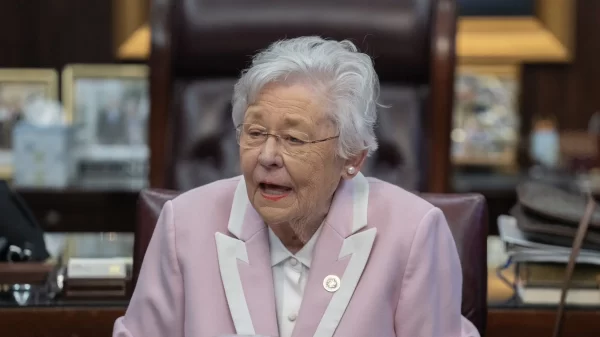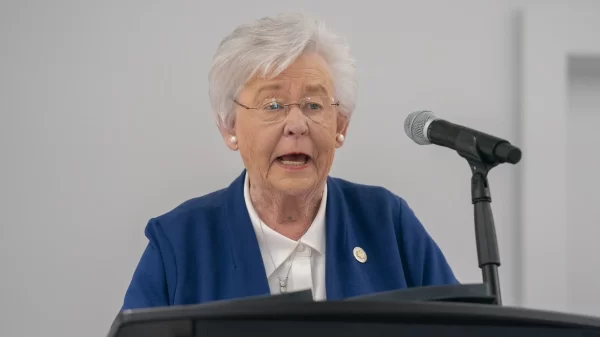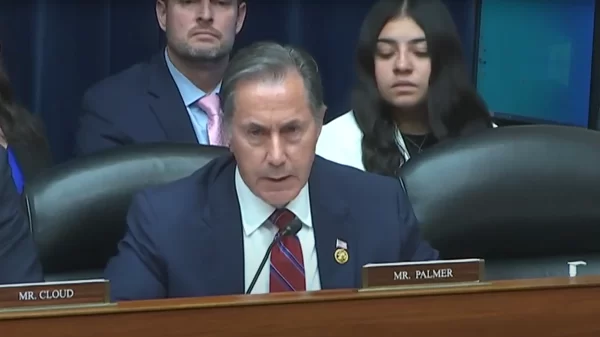Attorney General Steve Marshall is supporting legislation intended to reform the Alabama Board of Pardons and Paroles.
The legislation, proposed by the attorney general’s office, is sponsored by Republican Sen. Cam Ward and Republican State Rep. Connie Rowe.
The bill comes after months of controversy surrounding the parole board and its release practices.
In October, Marshall and Gov. Kay Ivey met with the parole board after prosecutors and victims’ advocates said the board considered granting too many offenders early parole.
In January 2018, Jimmy O’Neal Spencer, a violent offender sentenced to life imprisonment, was released from prison after “being recklessly and wrongfully paroled” by the Alabama Board of Pardons and Paroles, Marshall said.
He would be charged with another violent offense in July 2018.
“Months later, Spencer brutally murdered two women and a seven-year-old boy in their homes,” Marshall said. “This tragic failure of our justice system should have never happened—and cannot ever be allowed to happen again.”
Ward and Rowe’s bill would change the process by which the governor appoints board members, and it would be made more in line with the governor’s standing appointment authority for other boards. A Senate confirmation would be required.
The legislation also creates the position of director of pardons and paroles, who would serve as the agency head, while the board would retain its independent judicial function of granting or denying parole and issuing pardons.
The board’s three members currently appoint the director, but this bill would change that so the governor would appoint the board’s leader.
The board’s existing policies on parole consideration dates would be codified in law, and the measure strengthens the board’s duty to provide notice to victims affected by the potential pardonee or parolee’s release.
Offenders convicted of certain violent crimes would not be eligible for parole consideration until they serve at least 85 percent of their sentence or 15 years, whichever is less.
That restriction includes the crimes of murder, attempted murder, first-degree rape, first-degree kidnapping, first-degree sodomy, sexual torture, first-degree robbery with serious physical injury, first-degree burglary with serious injury and first-degree arson with serious injury.
” These changes are designed to increase accountability, set clear parameters, and make certain that no prisoner who is a threat to public safety can slip through the cracks,” Marshall said.
In October 2018, Ivey and Marshall met with the three members of the Alabama Board of Pardons and Paroles after the board scheduled early parole hearings for 150 violent offenders including dozens of convicted murderers.
She signed Executive Order 716, which imposed a temporary moratorium on early parole hearings and required the submission and implementation of a corrective action plan by the Board of Pardons and Paroles.
The corrective action plan implemented the 85 percent of sentence rule, and the board decided it would no longer consider early parole for inmates convicted of Class A felonies involving serious physical injury to a victim.
“Governor Ivey and I have worked hand in hand to prepare a comprehensive proposal that prioritizes public safety within Alabama’s parole system,” Marshall said. “Over the course of the last two months, we have had numerous conversations and have exchanged written correspondence with the Alabama Board of Pardons and Paroles related to the Board’s proposed corrective action plan.””
Marshall said the “changes to the law are critical to ensuring public safety.
“Alabama crime victims and their families have let it be known that accountability must be restored to the Pardons and Paroles Board in order to protect the public,” he said. “This legislation will help accomplish this goal and I look forward to its swift passage this session.”





















































